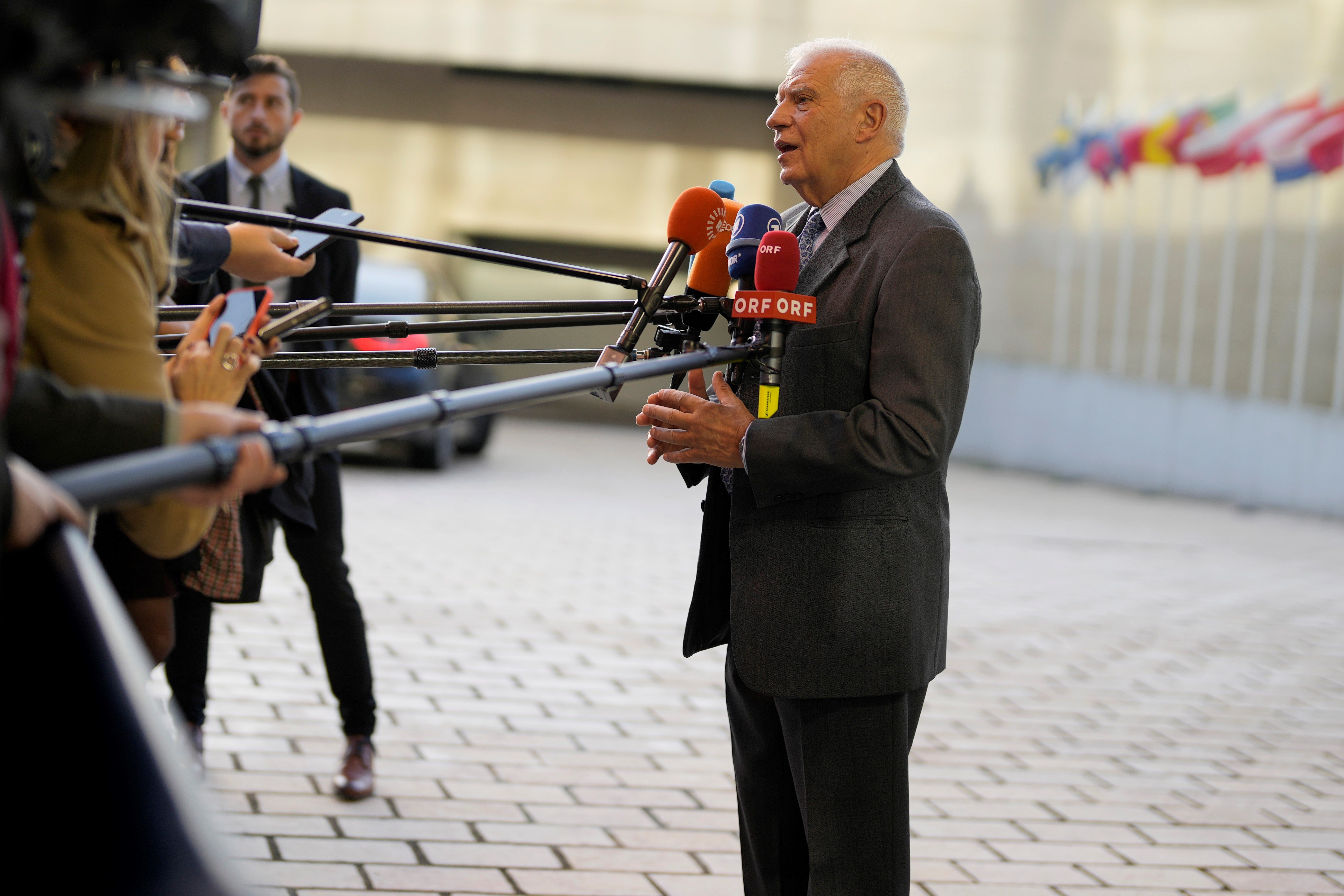EU will replace the Helsinki Act after Ukraine's accession - Borrell
Chief of EU foreign policy Josep Borrell says that the security map that was constructed after the Helsinki act will be adjusted after Ukraine enters the EU.
-

European Union foreign policy chief Josep Borrell speaks with the media as he arrives for a meeting of EU foreign ministers at the EU Council building in Luxembourg, Monday, Oct. 17, 2022 (AP Photo/Virginia Mayo)
The Head of EU foreign policy Josep Borrell the European Union is moving forward to reform the "geopolitical map" of the Union that was set in the 1975 Helsinki Accords after accepting Ukraine as a member state.
"We gave Ukraine the status of a candidate country, Ukraine will have a place within Europe, and that will change the geopolitical map of Europe, and we want to be able to define a new security structure in Europe to replace the Helsinki agreements structure," Borrell said addressing the Paris Peace Forum on Friday.
Read more: Ukraine's accession to EU may take decades: Macron
Ukrainian President Volodymyr Zelenskyy signed an accession application to the EU on February 28 few days after the war in Ukraine started.
European Commission President Ursula von der Leyen promised Zelensky his country's accession to the European Union would be expedited.
The European Commission stated that it can only negotiate with potential candidate countries if it has acquired a mandate from the EU's 27 member states, which Ukraine has not received.
Read more: Ukraine, Moldova granted EU candidacy
Despite der Leyen's insistence that Ukraine will be fast-tracked into the European Union, Austria's EU Affairs Minister Karoline Edtstadler said that the process will take more than a decade.
However, the EU later shot down the request for immediate EU membership for Ukraine.
The EU Commission evaluates everything when assessing a country's bid for membership, from economic performance to the legal system, as well as environmental and agricultural practices, which can take decades. Turkey for example has been a candidate country since 1999.
Germany and the Netherlands have both said that expediting Ukraine's membership is not something that can be fast-tracked.
The Helsinki Final Act was agreed upon in 1975 between 35 countries including the Soviet Union and the United States.
The Act set the relational security principles among European states, respecting territorial integrity and hindering intervention in internal affairs between the signing members among other matters.
Read more: Republican decision to cut aid if they win elections "shocked" Ukraine

 2 Min Read
2 Min Read








